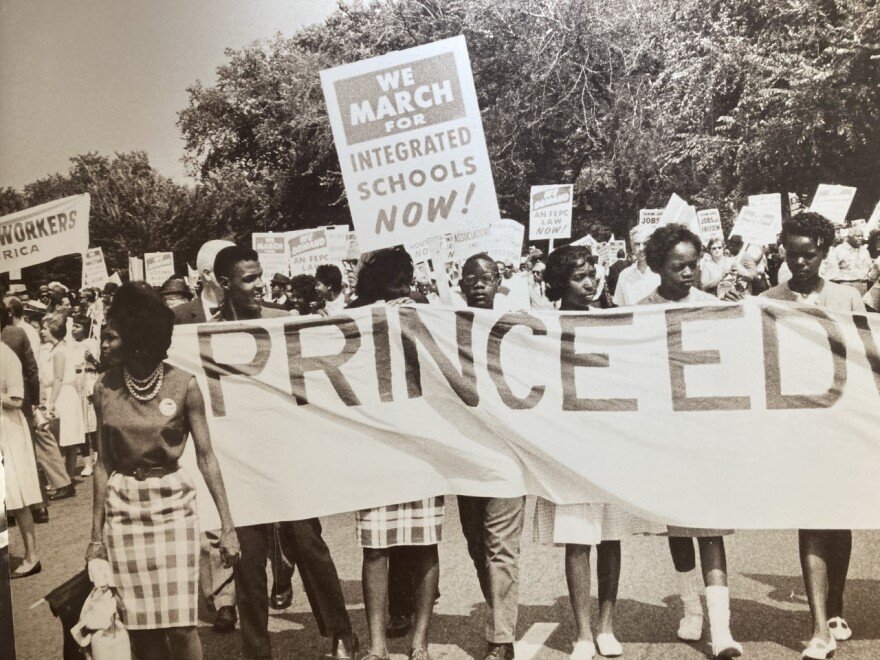In 1954, the Supreme Court did away with legal segregation of schools in Brown versus the Board of Education. Today, there’s a national park in Kansas celebrating that case, but there were other places involved in the lawsuit – one here in Virginia – and Congress has now made it part of the park.
Four years before Rosa Parks refused to give up her seat on a bus, at a time when Martin Luther King was still in college, students in Farmville, Virginia went on strike. White kids in the town attended one of two large, well-supplied high schools, while Black kids were crowded into a single building.
“It was built to hold about 180 students, and at peak occupancy this building had about 477 or so,” says Cainan Townsend, managing director of what is now the Robert Russa Moton Museum.
“Didn’t have a cafeteria. Didn’t have a nurse’s office. Hand-me-down desks, hand-me-down books; no lockers, no gym – things that were really standard. ”
The school board was spending just over $300 per student at Moton while spending nearly $1,700 per student on white kids. Clearly, separate was not equal, and one month earlier five Black students lost their lives, because the district spent so little on their buses.
“This old broken-down bus, as all their buses were, broke down on the train tracks,” Townsend says.
One of the kids killed when the train hit was a close friend to 16-year-old Barbara Johns who led the student walk-out. News reached the National Association for the Advancement of Colored People which then added Moton to its list of plaintiffs in the Brown case.
The superintendent of schools promised a new building, and after two weeks Moton students went back, but residents of Farmville were not pleased. The local newspaper described the action as “mass hookie.” Many teachers and the principal at Moton would lose their jobs, and the protest’s leader was in danger.
“Barbara was threatened. There was a cross-burning here on the school grounds here at Moton," Townsend explains. "So, they moved Barbara away to live with her uncle, Reverend Vernon Johns in Montgomery, Alabama.”
He was the pastor of a church and a civil rights firebrand – so outspoken that the congregation would replace him with another young minister -- Martin Luther King.
The former school is now a museum filled with powerful photographs and a film that recounts Moton’s history. Each of five classrooms is devoted to a different part of the story – the walk out, the court case, other civil rights protests and mass resistance which followed the Supreme Court’s ruling. Visitors hear directly from former student Dorothy Holcomb about how many Black students ended up in local churches where the community organized so-called training centers.
“Unlike the white children, we didn’t have buses," Holcomb recalls. "So, at 10 years old, I was hiking three miles to school in the morning and three miles home in the evening – but we did it.”
Some white families sent their kids to private schools or moved away. Some Black families sent their kids to live with relatives in places where public education survived. It was five years before desegregated schools opened in Prince Edward County, and former museum director Lacy Ward says it was a question whether Black students would return.
“Plans are made to open schools on Monday the 16th of September, 1963. Sunday morning the world is shocked by a bomb that’s set off in Birmingham, Alabama," Ward says. "Will parents actually send their children to schools if they’re seeing this on the news? But schools did open, the buses ran, the students showed up.”
This summer, Congress added the Moton Museum and other sites that played an important role in desegregating schools in South Carolina, Delaware and Washington, D.C. to the Brown v. Board of Education National Historic Park in Topeka, Kansas.
This report, provided by Virginia Public Radio, was made possible with support from the Virginia Education Association.


